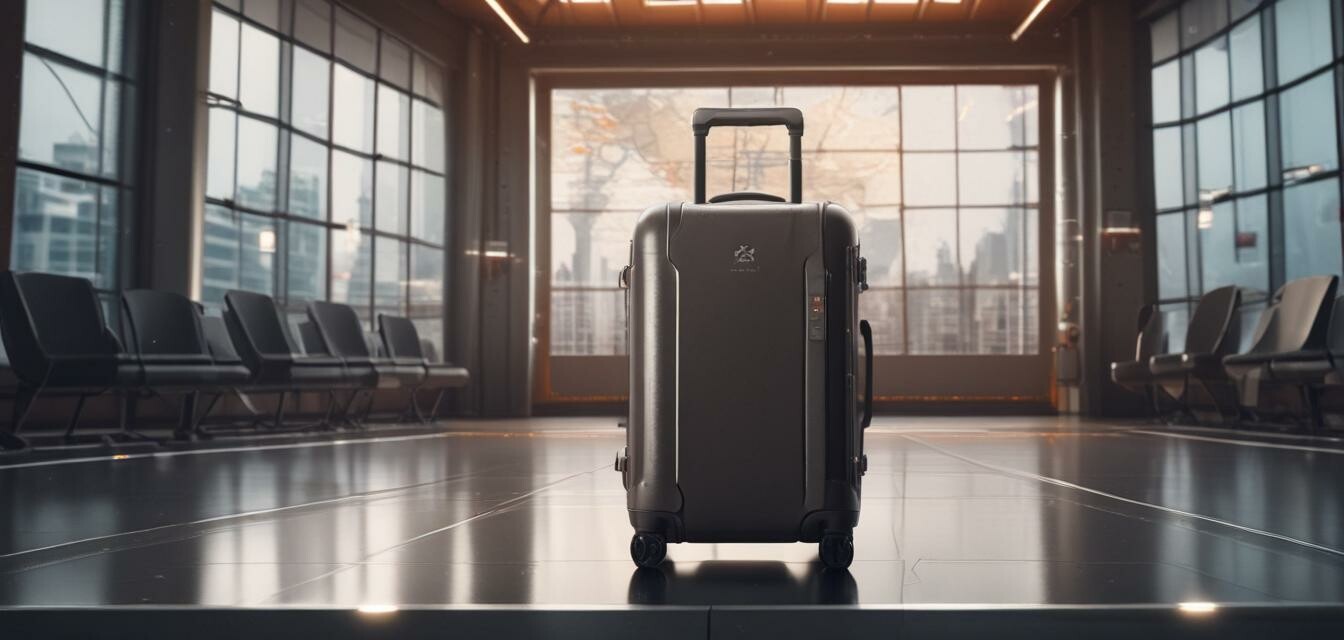
Smart luggage: Regulatory changes in 2025
- The rise of smart luggage has prompted regulators to establish guidelines for safety.
- Travelers should be aware of the evolving regulations that affect smart luggage designs.
- By 2025, there will be specific criteria for GPS integration and battery safety.
- Understanding these regulations can help travelers make more informed purchasing decisions.
As we look forward to 2025, the landscape of travel technology continues to evolve, especially in the realm of smart luggage. With the integration of GPS tracking and other innovative features, smart luggage has transformed the way we travel. However, the rise of these modern solutions has also prompted regulatory bodies to step in and implement necessary guidelines to ensure safety and reliability. In this article, we will delve into the current regulations surrounding smart luggage and what travelers need to be aware of as we approach 2025.
Current regulations impacting smart luggage
Understanding the existing regulatory framework around smart luggage is crucial for both manufacturers and users. Here are some of the main regulations currently in place:
| Regulation | Description | Impact on Smart Luggage |
|---|---|---|
| FAA Guidelines | Guidelines on battery safety in luggage for air travel. | Smart luggage must comply with battery charge limits. |
| Wireless Transmission Laws | Regulations governing the use of radio frequencies. | Devices must adhere to frequency usage limits for GPS. |
| Consumer Product Safety Act | Ensures products are safe for consumer use. | Smart luggage must meet safety standards for all components. |
Anticipated changes in regulations by 2025
As technology evolves, so will the regulations pertaining to smart luggage. Here are some anticipated changes that travelers should be aware of:
- Battery efficiency standards: We expect the introduction of stricter rules on battery efficiency to prevent overheating and related hazards.
- Enhanced GPS tracking regulations: Future laws may dictate how GPS tracking data should be stored and shared.
- Privacy laws: There will likely be new requirements governing data protection for consumers using smart luggage.
Importance of compliance for manufacturers
It is essential for smart luggage manufacturers to stay compliant with evolving regulations. Ensuring compliance not only promotes consumer safety but also builds brand trust. Manufacturers that are proactive about conforming to regulatory standards will stand out in a competitive market.
What travelers need to know
As a traveler, familiarizing yourself with the upcoming regulatory changes is vital for ensuring a smooth travel experience. Here are some key points that can assist travelers:
- Check for compliance labels: Smart luggage should come with labels indicating it meets all current regulations.
- Understand battery safety: Know the requirements for lithium-ion batteries to ensure your luggage is airline-approved.
- Stay informed: Regularly check updates from regulatory bodies as new information becomes available.
Pros
- Improved safety through regulatory insights.
- Enhanced tracking features lead to better luggage recovery.
- Compliance builds trust between consumers and manufacturers.
Cons
- Some regulations may lead to increased costs for manufacturers.
- Potential confusion for consumers regarding compliance and safety standards.
Future of smart luggage and technology
The overall trend in the smart luggage industry points towards increased integration of technology. With that, we can expect further advancements in features like:
- Enhanced battery life for longer travels.
- Smart locks that utilize biometric data.
- Improved connectivity features for easier tracking and recovery.
Conclusion
The regulatory changes set for 2025 present an opportunity for both manufacturers and consumers in the smart luggage market. Understanding these developments can provide great peace of mind for travelers as they increasingly rely on technology to safeguard their belongings. By staying informed about the evolving landscape of regulations, you can better navigate your travel options and make educated purchasing decisions.
Further reading
Interested in learning more? Check out our additional resources: